In the lead-up to the 2022 Qatar World Cup, as with the previous 21 World Cups that have preceded it, hopeful national teams from around the world have travelled to a whole host of countries to play their qualifying games, all in the pursuit of qualifying for – and hopefully winning – the World Cup.
Alongside the skill, dedication and teamwork it takes for a nation to play in and win football’s biggest tournament, it also takes a great deal of travel too.
With qualifying games taking place across the globe, teams rack up many travel miles just to secure their spot in the tournament, let alone get hold of the coveted World Cup trophy.
We’ve delved into the details to give you the ultimate football commentary on:
- The qualifying national teams that have travelled the furthest to earn their spot at the Qatar World Cup.
- The national teams that travelled the furthest in their qualifying games, only to miss out on a spot at the Qatar World Cup.
- The teams throughout history that have travelled the furthest to win the World Cup(s).
- The British or Irish national team that has travelled the furthest in World Cup history.
Which Qualifying National Team has Travelled the Furthest to Reach Qatar 2022?
There are 32 national teams lined up and eager to get out onto the pitch at the Qatar World Cup, but which of those teams travelled the furthest to get there during their away qualifying games?
Australia ranks in first place as the team that has travelled the furthest with 107,267.18 round miles behind them. Known as The Socceroos, the team has attended eight away trips travelling to every corner of Asia to destinations like Kuwait, Nepal, Japan, China and Saudi Arabia.
The South Korea national team has racked up the second-highest amount of round miles at 43,951.78 round miles, playing five away games to qualify for their place on the pitch at the Qatar World Cup and the nation’s tenth consecutive World Cup appearance.
Saudi Arabia follows closely behind in third, with a total of 43,734.24 round miles, taking five away trips to play against the likes of Australia, Vietnam and China on their journey to qualify.
Japan travelled slightly less to qualify for Qatar World Cup, totalling 37,326.11 round miles for their five away games played. The team who play in Samurai Blue competed in countries along the Arabian Peninsula such as Saudi Arabia and Oman, as well as making trips to China and Australia.
The four national teams that travelled the most to qualify for the 2022 World Cup, all qualified through the AFC (Asian Football Confederation). The fifth and final AFC national team to appear at the 2022 World Cup is Qatar, who qualified for the tournament automatically and therefore travelled zero miles.
Travelling the least out of the top five, but still, a great deal further than the rest of the qualifying teams is Brazil, with 36,006.89 round miles. The Brazil team undertook nine away trips to a range of countries including; Peru, Chile, Ecuador and Colombia.
Despite not travelling the furthest to play their away games, the UK’s representatives at the 2022 World Cyp, England (14,213.88 round miles) and Wales (16,352.78 round miles), have still travelled a significant amount to earn their spots within the World Cup.
The England team played five away games against the likes of Poland, Albania and Hungary, whilst Wales played six away games including Belgium, the Czech Republic and Estonia.
Which National Team has Travelled the Furthest Only to Miss Out on Qatar 2022?
With just 32 national teams earning a place at the Qatar 2022 World Cup, sadly a lot of great nations miss out each time. So, which absentee team ranked by FIFA as one of the top 64 in international football travelled the furthest in their failed pursuit for World Cup glory?
Peru takes the unwanted title of the team that travelled the furthest (56,439.72 round miles), but missed out on a place in the World Cup. Peru played ten away games in the hopes of qualifying, including trips to South American rivals Bolivia, Brazil and Argentina, as well as a final unsuccessful play-off fixture against Australia which took place in Qatar.
In second, missing out on a spot in the Qatar World Cup line-up despite travelling a significant 40,715.06 round miles is Colombia. The team travelled to nine away games, playing nations like Ecuador, Uruguay and Paraguay.
Keeping in South America, Venezuela emerges as the third non-qualifying team to have travelled the most, averaging 37,694.04 round miles to play their nine away games. Chile, Bolivia and Colombia were some of the many countries the team travelled to during the qualifying games.
Playing ten away games, Panama’s national team travelled 32,316.52 round miles in total but sadly missed out on the opportunity to follow up on their appearance at the 2018 World Cup. The team were up against a variety of countries from North and Central America, from Honduras and Jamaica to Canada and Mexico.
Finishing off the top five most-travelled teams that didn’t qualify for the World Cup is Chile, with a total of 30,729.82 round miles. Attending nine away games, Chile competed against the countries Uruguay, Brazil, and Peru in their campaign to qualify.
The European national team to travel the furthest during the 2022 World Cup qualification games was Iceland, with the nation putting in 21,928.06 round miles over five away games.
Of the UK teams, Scotland, the Republic of Ireland and Northern Ireland also failed to qualify for Qatar, with Scotland travelling the furthest at 35,293.31 miles to its six pre-world-cup games.
The Republic of Ireland travelled 24,525.6 miles to play four away games in Serbia, Portugal, Azerbaijan and Luxembourg. The Northern Ireland team travelled even fewer miles, totalling 14,399.38 miles to their four away games against Italy, Lithuania, Switzerland and Bulgaria.
Which National Team has Travelled the Furthest in World Cup History?
Starting in 1930, and occurring every four years since 1950, teams from all over the world travel to play in and potentially fulfil their dreams of winning the World Cup. But which of these national teams has travelled the furthest in World Cup history to attend these tournaments?
Brazil kick off the leaderboard as the team that has travelled the furthest in World Cup history, with 224,776.46 round miles. The Brazil team is yet to miss a World Cup, and have not only attended more World Cups than any other team with 22 tournaments, but the team also won more World Cups than any other nation – an impressive five times in the years 1958, 1962, 1970, 1994 and 2002.
Heading up second and fourth place for their lengthy travels to attend World Cups over the years are the fellow South American footballing giants; Argentina accumulating 215,126.26 round miles and Uruguay with 146,146.45 round miles. Fans of these teams may consider it all to be worth it, as Argentina and Uruguay have each won two World Cups. Although Argentina has not won one since 1986, and Uruguay’s last taste of the Jules Rimet was in 1950.
Some teams, despite travelling long distances to attend World Cup tournaments, sadly return home without a World Cup win. The top qualifier for this is Mexico – who rank third overall – undertaking a lengthy 73,166.01 round miles over the years, followed by South Korea – fifth overall – with 126,573.2 round miles and the eighth-placed USA with 111,793.82 round miles.
Alternatively, other teams that have travelled vast distances have been able to take home the trophy multiple times. Both Germany (119,444.79 round miles) and Italy (109,059.95 round miles) have travelled long distances to attend the World Cup over the years, but these European giants have also landed four World Cup wins each.
So far, just eight different nations have claimed the title of World Cup champions, but which World Cup winners have travelled the furthest per World Cup win? Spain has undertaken the longest journey to win their solitary World Cup, averaging 113,205.1 round miles, followed closely by Argentina with 107,563.13 round miles per win and England in third at 100,252.28 round miles.
If one thing is certain, it’s that when it comes to winning a World Cup, a country truly has to put a lot of travelling in.
Which British and Irish Nation has Travelled the Furthest in World Cup History?
Unsurprisingly given the nation’s 16 World Cup appearances, England takes the top spot on the UK and Irish scoreboard as the team that has travelled the furthest distance in World Cup history, the Three Lions have racked up a significant 100,252.28 round miles.
Scotland secures its position in second place, attending eight World Cups in its history, travelling 35,293.31 round miles around the world in the process. The national team began its World Cup journey in Bern, Switzerland (Wankdorf Stadium) in 1954 and attended its last in Paris, France (Stade de France) in 1998.
The Republic of Ireland team placed in third, accumulating 24,525.6 round miles whilst travelling to the three World Cups including Rome, Italy (Stadio Olimpico) in 1990 and some a little further from home in Los Angeles, USA (Rose Bowl) in 1994 and Yokohama, Japan (International Stadium) in 2002.
Northern Ireland ranks just behind the Republic of Ireland on their mileage, attending three World Cups and clocking up 14,399.38 round miles. The team has appeared at tournaments in Stockholm, Sweden (Rasunda Stadium) in 1958, Madrid, Spain (Santiago Bernabeu) in 1982, and Mexico City, Mexico (Estadio Azteca) in 1986.
Wales emerges as the team in the UK to travel the least to World Cup events and will attend just its second of two World Cups this year in Qatar (Lusali Iconic Stadium), bringing their total distance travelled to a much smaller 87,07.7 miles. Wales’ previous World Cup appearance saw the team travel to Stockholm, Sweden (Rasunda Stadium) way back in 1958.
Methodology
Data was collected from FIFA’s official website which showed the FIFA men’s world rankings, which are correct as of Tuesday 18th October. FIFA also provided data on the Qatar 2022 World Cup, the teams that will play in it and the stadiums in use. Likewise, all data on the teams, stadiums and champions of any previous World Cups were drawn from FIFA.
Taking the top 64 FIFA-ranked nations – which was inclusive of every nation in attendance at the Qatar 2022 World Cup – the qualification process for each of these nations was charted on Fotmob, and cross-referenced against each nation’s official website.
With each nation’s away games counted, the distance was measured between each team’s national stadium and the national stadium of every away fixture played during qualifying games. For nations that used multiple stadiums during their international fixtures, such as Germany, the most commonly used stadium during the World Cup qualification time period was selected (in Germany’s case this was the Olympiastadion in Berlin).
Distances were measured using the ‘measure distance’ tool on Google Maps, which provided a measurement in both kilometres and miles. This campaign opted to use the measurements in miles.
When it came to measuring the distances travelled by nations in the history of the World Cup, using the same ‘measure distance’ tool on Google Maps the data was gathered on any nation that has attended five or more World Cups, plus all UK and Irish nations.



